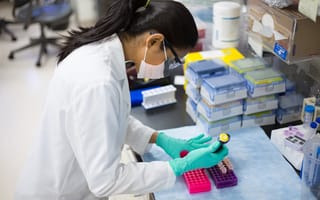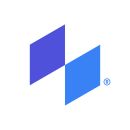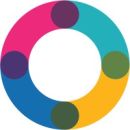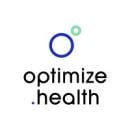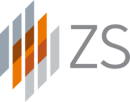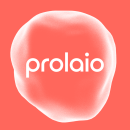Big data is being utilized more and more in every industry, but the role it’s playing in healthcare may end up having the greatest impact on our lives.
Researchers, hospitals and physicians are turning to a vast network of healthcare data to understand clinical context, prevent future health issues and even find new treatment options. While there are many ways data is being used to impact healthcare, we’ve rounded up five areas — along with a few examples of companies and organizations working within each area — where big data is taking on some of the major challenges in healthcare.
Big Data in Healthcare Applications and Examples
Big Data in Healthcare Applications
- Cancer Research
- Disease Detection
- Population Health
- Pharmaceutical Research and Development
- Health Insurance Risk Assessment
Big Data and Cancer Research
Nearly all of us have been impacted by cancer in some way, and the search for new ways to combat the disease is in high gear. Researchers in both the private and public sector are dedicated to everything from researching a cure to finding more effective treatment options. Big data has changed the way these researchers understand the disease, providing access to patient information, trends and patterns never accessible before. The following are just a few of the companies using big data to make headway in the fight against cancer.
Location: Chicago, Illinois
Tempus is building the largest library of molecular and clinical data in the world with the goal of providing medical professionals with more clinical context for each patient’s cancer case. The Tempus platform collects and organizes data from lab reports, clinical notes, radiology scans and pathology images, accelerating oncology research and helping physicians make more personalized and informed treatment plans.
Location: New York, New York
Flatiron Health utilizes billions of data points from cancer patients to enhance research and gain new insights for patient care. Their solutions connect all players in the treatment of cancer, from oncologists and hospitals to academics and life science researchers, enabling them to learn from each patient.
Location: Philadelphia, Pennsylvania
Oncora Medical is simplifying workflows for oncologists by blending machine learning, automation and big data into a single platform. With the company’s data analysis tools, oncologists can compile data and quickly add information to a patient’s health records. As a result, oncologists can review a patient’s radiology and pathology history faster, delivering more timely and personalized care to cancer patients.
Big Data and Early Disease Detection
Early detection for diseases and complications is crucial for successful treatment. Whether it’s cancer, multiple sclerosis or a number of other conditions, screenings and other exams are often vital in staying ahead of disease. Here are a few examples of companies leveraging big data to improve early detection of disease and complications in patients.
Location: Irving, Texas
Pieces is a cloud-based software company that collects data throughout the entire patient journey to improve both the quality and cost of care. The company’s flagship product, Pieces Decision Sciences, is a clinical engine that makes decisions and recommendations based on a variety of data such as lab results, vitals, and structured and unstructured data. The platform consistently works to identify possible interventions while also learning from clinical outcomes.
Location: Charlotte, North Carolina
PeraHealth is the creator of the Rothman Index, a peer-reviewed, universal scoring system for the overall health of a patient. The score takes the data within electronic health records, vitals, lab results and nursing assessments to assign a score. The scores are provided in a visual graph and updated in real time to identify changes and keep track of the details, helping patients avoid complications.
Location: New York, New York
Prognos applies artificial intelligence to clinical data and manages Prognos Factor — a hub for multi-sourced diagnostic data. Their AI platform helps physicians apply treatments earlier, displays clinical trial opportunities, suggests therapy options and exposes care gaps for more than 30 conditions.
Big Data and Population Health
Different from public health, which focuses on how society can ensure healthier people, population health studies the patterns and conditions that affect the overall health of groups. Big data is an essential part of understanding population health because without data, patterns are difficult to pinpoint. The following are just a few examples of companies that are aggregating and organizing data to help healthcare organizations and researchers identify the patterns that can improve health conditions.
Location: Denver, Colorado
Strive Health offers technology and services to innovate care for patients with chronic kidney disease. In the area of population health, the company provides its partners throughout the healthcare system with access to its CareMultiplier platform and specialized care teams, with the goal of enabling “a new standard of kidney care.” StriveHealth’s CareMultiplier technology gathers data from multiple sources and uses machine learning to power predictive analytic models that produce data insights to fuel optimized personal care plans that can cut down on costs and hospitalizations, while also improving patient outcomes.
Location: Boston, Massachusetts
1upHealth offers data solutions to enable interoperability across the healthcare ecosystem. For example, the company’s 1up Population Connect product simplifies acquisition and sharing of clinical and claims data to reduce manual workloads and inform decision making with comprehensive patient population data.
Location: Fully Remote
Arcadia’s big data platform provides organizations throughout the healthcare landscape with actionable insights that enable them to “make more strategic decisions in support of their financial, clinical, and operational objectives.” In the area of population health management, for example, Arcadia’s analytics capabilities make it possible to identify and overcome care gaps.
Location: Creve Coeur, Missouri
Amitech Solutions applies data to the health field in multiple ways, from modern data management to healthcare analytics. Specifically, Amitech utilizes data for population health management solutions, combining physical and behavioral health data to identify risks and engage patients in their own healthcare.
Location: Marlborough, Massachusetts
Linguamatics mines the untapped, unstructured data in electronic health records for research and solutions in population health. By using natural language processing, Linguamatics can use unstructured patient data to identify lifestyle factors, build predictive models and detect high-risk patients.
Location: Washington, D.C.
Socially Determined takes a more holistic approach to population health by supplying healthcare organizations with social risk intelligence. The company’s platform SocialScape measures factors such as patients’ access to housing, transportation and food. Healthcare groups can then craft their strategies around these variables to deliver tailored care to specific populations.
Big Data and Pharmaceutical Research
Whether it be vaccines, synthetic insulin or simple antihistamines, medicines produced by the pharmaceutical industry play an important role in the treatment of disease. New drug discovery and creation depends on data to assess the viability and effectiveness of treatments. The following companies are using big data to help enhance pharmaceutical companies with research and development.
Location: San Mateo, California
Evidation has a mobile app that rewards users for healthy behaviors, provides access to health insights and offers opportunities to contribute to health research. Through Evidation, researchers can access everyday health data that informs their work and enables them to discover new ways of diagnosing, treating and managing various medical conditions. The company prioritizes giving app users control over their data, asking them for consent before their data can be accessed.
Location: Durham, North Carolina
IQVIA builds links between analytics, data and technology, so pharmacy leaders can complete faster and more effective clinical research. Besides boasting a dense healthcare database, the company leverages AI and machine learning to pinpoint the ideal patients for specific trials. Pharmacists can then run decentralized trials, compile data with IQVIA’s devices and jumpstart the research and development process.
Location: Chicago, Illinois
Kalderos is challenging the cost of pharmaceuticals through its drug discount management platform, which collects data from multiple sources and stakeholders to improve transparency among patients. Drug manufacturers, covered entities and payers can use the platform to collaborate too. The company hopes to promote trust and equity within the healthcare industry.
Location: Santa Clara, California
Although now part of the Cloudera family due to a merger, the Hortonworks data platform continues to help pharmaceutical companies and researchers gain a better view of pharmaceutical data. Because billions of records are integrated and made accessible, companies can answer questions that weren’t possible before. This sparks more effective research for clinical trials, improved safety, faster time to market and better health outcomes.
Location: Iselin, New Jersey (U.S. office)
Innoplexus is the creator of the iPlexus discovery tool that organizes millions of publications, articles, dissertations, thousands of clinical trials, drug profiles and congress articles into a concept-based research platform. The tool helps pharmaceutical companies find the relevant information needed for research and new drug discovery.
Location: Mansfield, Massachusetts
Clinical research programs rely on eClinical Solutions for technology that enables data-driven digital trial operations. The company offers a platform that unifies data from disparate sources and delivers real-time insights to inform decision making. More than 100 organizations across the life sciences landscape rely on the company’s solutions.
Big Data and Health Records
When it comes to healthcare and specifically health insurance, risk is often a large contributing factor in how patients access care. The following are a few examples of companies using big data to gain more insight into risk and ensure accuracy in adjustments.
Location: Fully Remote
Blubyrd is designed to help surgical facilities and clinical practices compile and exchange data efficiently and securely. This data includes appointment schedules, procedure codes and equipment inventory.
Location: Chicago, Illinois
Avaneer Health works to improve the efficiency of data flow in the healthcare industry by giving network participants access to administrative help and secured transactions. Founded in 2020 by a collective of top healthcare industry leaders — including CVS, Anthem, Cleveland Clinic and more — the company’s platform relies on blockchain.
Location: Fully Remote
Particle Health makes an API platform that brings together patient records into a single secure place. With a simple query, developers can access clean and actionable data sets to use. The goal is for healthcare providers to use the data to make more meaningful recommendations to their patients.
Location: Chicago, Illinois
Upfront Healthcare’s software platform uses data-driven personalization to improve communications between healthcare professionals and patients. For example, Upfront collects data — such as patient-reported outcomes, behavioral patterns, psychographic segments — and uses it to deliver relevant and timely messages to patients, whether it’s a reminder or a call to action.
Location: Fully Remote
Human API streamlines the underwriting process by allowing teams to sift through detailed electronic health records. A health intelligence platform reviews patients’ health backgrounds with automated features and pinpoints any underlying conditions. This workflow reduces the time it takes to complete each application, leading to higher placement rates, larger volumes of applicants and improved customer experiences.
Location: San Mateo, California
Apixio’s data acquisition technology wrangles medical data from millions of files, claims, PDFs and other health records. With this information, Apixio’s coding application provides more accurate risk adjustment for healthcare providers.
Location: San Mateo, California
Health Fidelity helps healthcare providers and institutions find risks normally concealed in clinical charts. Their technology uses natural language processing to extract 100 percent of data within clinical charts and identify problems in care, assessment and documentation, which provides improved visibility for risk adjustment.
Location: New York, New York
Garner Health conducts analyses on millions of patient records and medical claims to offer its users data that accurately shows how doctors have previously diagnosed and treated their patients. It offers its app users a data-powered doctor search tool to connect with providers.
Location: Seattle, Washington
Optimize Health offers a remote care platform that serves as a unified interface that allows medical providers to comprehensively view patient data for more effective remote monitoring and treatment. This platform harnesses big data to facilitate chronic care management for conditions such as diabetes and heart disease, and tackles principal care management for urgent health issues like cancer and infections.
Other Big Data in Healthcare Applications
Location: Chicago, Illinois
Medtelligent offers a suite of software tools known as ALIS that support efficient management of assisted living communities. The company says its solutions are designed “to capture complete and accurate data for reporting and analytics.” That data powers features like ALIS HQ, a customizable dashboard that lets users view insights that enable them to track occupancy and incidents, for example, as well as optimize staffing.
Location: Boston, Massachusetts
InterSystems offers IRIS for Health, a platform engineered to help healthcare organizations manage and glean value from large or complex clinical datasets. It supports deep interoperability and delivers a high-performance, multi-model data engine that can ingest and analyze millions of transactions in real time.
Location: Austin, Texas
Findhelp aims to help build a more effective and comprehensive system of care by addressing the social factors that influence health outcomes. It collects various types of data like referral, demographic and social needs screening results. This allows insurers, public health organizations and healthcare providers to identify unmet needs, measure impact and enhance care.
Location: Cincinnati, Ohio
PatientPoint develops technology to enhance healthcare experiences. It uses big data to measure the impact of interventions, optimize content delivery at the point of care and fuel predictive analytics across patient interactions. The company aggregates and analyzes data across areas like provider behavior, patient demographics, clinical touchpoints and campaign engagement. PatientPoint then uses advanced modeling capabilities to help healthcare providers and organizations deliver personalized care journeys and close care gaps.
Location: Conshohocken, Pennsylvania
Cencora is a pharmaceutical distribution company that develops solutions for both human and animal health. It offers advanced data management solutions like rapid data collection and analysis capabilities to make clinical trials more efficient. The company also aims to improve payer access and practice performance through its data-driven approach.
Location: Evanston, Illinois
ZS is a tech and management consultancy, and its work involves supporting healthcare by leveraging machine learning and working with complex datasets to make drug development more efficient and improve patient outcomes. The company uses cloud platforms and AI to process terabytes of patient, clinical and commercial data and deliver insights for client organizations.
Location: Chicago, Illinois
Prolaio is a clinical intelligence platform that aims to deliver continuous, predictive and shareable heart data. It applies analytics and AI to large-scale healthcare data, supporting clinical decision making and improving patient outcomes.

